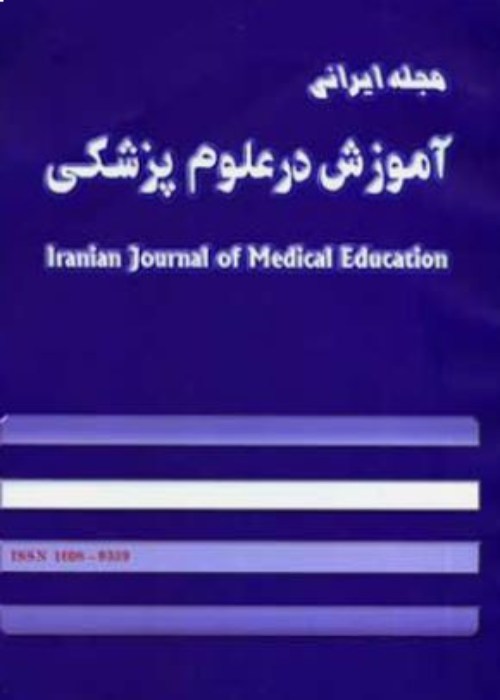Assessing the Leadership Styles and Effectiveness of Administrators in Isfahan University of Medical Sciences in 1388
Author(s):
Abstract:
Introduction
Achieving the organization goals depend on management and effective leadership styles. This is true in all organizations including academic centers. This study aimed to investigate leadership effectiveness and styles among the middle level managers of Isfahan University of Medical Science. Methods
This descriptive study was conducted on all middle level managers (head or deputy of faculties) of Isfahan University of Medical Sciences. Data collection was done using a questionnaire consisting of three parts: demographic characteristics, Metzcus & Burden’s leadership style questionnaire, and Ramazani’s effective leadership questionnaire. Leadership styles was classified into three categories: liberal (democratic), arrogant (authoritarian or dictator) and consolidated. The principles of effective leadership, based on obtained scores, were described as strong leadership, good leadership, leadership that requires more effort, and poor leadership. Data analysis was done using descriptive statistical methods. Results
Based on results, mean age was 44.9 years, 76% were men, mean work experience was 17.5, management experience was 7 years and mean training duration was less than one month. 87% of managers had postdoctoral degree. 60% of managers were dictator, 26% were consolidated and 13 percent of managers had a democratic leadership style. 84% of managers believed that their leadership is strong, 16 percent believed they are good leaders and none of them believed that their leadership requires more effort or is poor. Conclusion
It seems that current managers were selected based on their degree not they major. For most of them leadership was equal to duty performance. They believed that utility is in higher productivity and they paid less attention to its human aspects. University administrators need to pass formal and informal management courses in order to have an effective leadership and they should not be selected merely based on their academic degree.Language:
Persian
Published:
Iranian Journal of Medical Education, Volume:11 Issue: 9, 2012
Page:
1255
magiran.com/p984255
دانلود و مطالعه متن این مقاله با یکی از روشهای زیر امکان پذیر است:
اشتراک شخصی
با عضویت و پرداخت آنلاین حق اشتراک یکساله به مبلغ 1,390,000ريال میتوانید 70 عنوان مطلب دانلود کنید!
اشتراک سازمانی
به کتابخانه دانشگاه یا محل کار خود پیشنهاد کنید تا اشتراک سازمانی این پایگاه را برای دسترسی نامحدود همه کاربران به متن مطالب تهیه نمایند!
توجه!
- حق عضویت دریافتی صرف حمایت از نشریات عضو و نگهداری، تکمیل و توسعه مگیران میشود.
- پرداخت حق اشتراک و دانلود مقالات اجازه بازنشر آن در سایر رسانههای چاپی و دیجیتال را به کاربر نمیدهد.
In order to view content subscription is required
Personal subscription
Subscribe magiran.com for 70 € euros via PayPal and download 70 articles during a year.
Organization subscription
Please contact us to subscribe your university or library for unlimited access!


